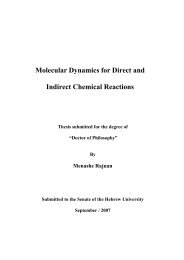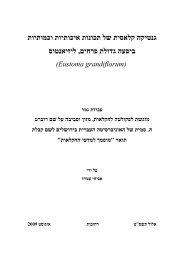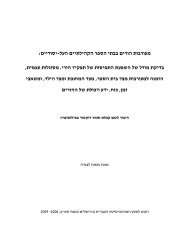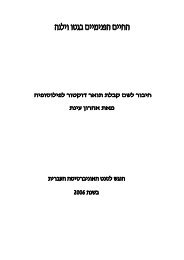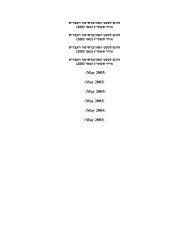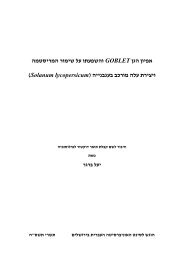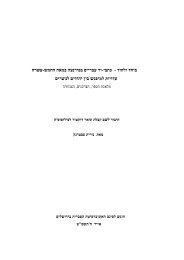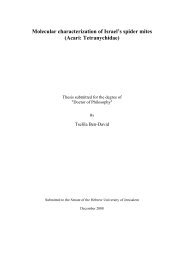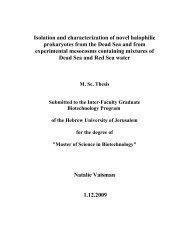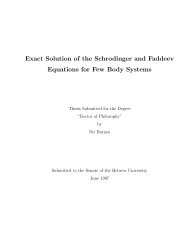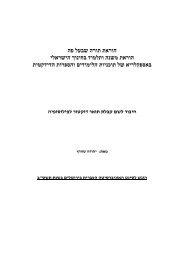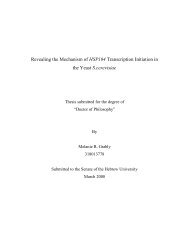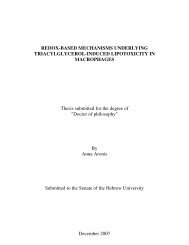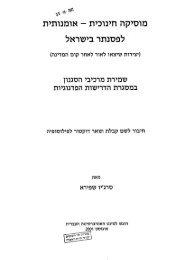××ר×ת ס×פ×ר ×× ×¡ ××קר×× ×××× ×× ××××××ª× ××שר×× - ×××× ××רס××× ××¢×ר×ת ...
××ר×ת ס×פ×ר ×× ×¡ ××קר×× ×××× ×× ××××××ª× ××שר×× - ×××× ××רס××× ××¢×ר×ת ...
××ר×ת ס×פ×ר ×× ×¡ ××קר×× ×××× ×× ××××××ª× ××שר×× - ×××× ××רס××× ××¢×ר×ת ...
Create successful ePaper yourself
Turn your PDF publications into a flip-book with our unique Google optimized e-Paper software.
such as difficulties within the text, as well as second-order ones, such as the exegete's<br />
philosophy, his cultural presuppositions, or his polemical concerns.<br />
Clearly the thinking that characterized medieval exegesis is not entirely consonant<br />
with that of modern hermeneutics. For example, a modern metaphorical reading will<br />
be expected to conform to lexical clues and to adhere as much as possible to the<br />
simple meaning of the text. Medieval commentators, on the other hand, sometimes<br />
allow themselves the freedom of departing radically from the peshat when<br />
interpreting metaphorically. Nevertheless, there is a certain degree of correlation<br />
between the approaches and presuppositions of different contemporary hermeneutical<br />
schools and those of corresponding schools of classical exegesis: (a) The reverence<br />
towards the text characteristic of traditional Jewish exegesis also typifies the schools<br />
of authorial intent and New Criticism. All these approaches posit that the text has an<br />
inherent meaning, which needs to be deciphered using objective, rather than<br />
subjective, tools, even though different schools and different individual exegetes may<br />
differ regarding the precise nature of these tools. (b) The assumption of many<br />
classical exegetes that answers to their philosophical or ideological concerns may be<br />
found hidden in the biblical text, parallels the assumption of the reader response<br />
school that the perplexities and concerns of the reader play a central role in<br />
ascertaining the meaning of texts. (c) Attempts by exegetes to reconcile miracle<br />
stories with their view of science and philosophy included adoption of various reading<br />
strategies, often involving metaphorical approaches and sometimes involving close<br />
reading techniques, all of which are characteristic of modern commentators. (d) The<br />
legitimacy accorded by some classical commentators to exercising personal<br />
preferences in choosing among interpretive options parallels the modern awareness of<br />
318



